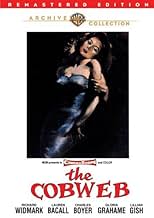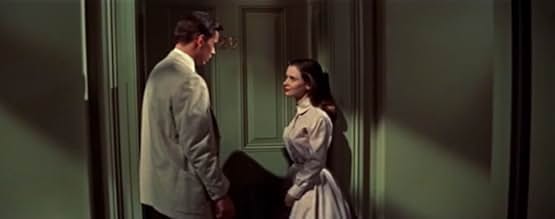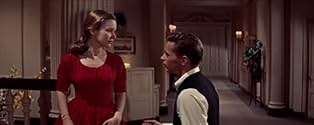Minnelli's "The Cobweb" explores the fascinating, disturbing idea of a mental institution where the personal quirks of the staff and their families unwittingly have an impact on the patients. In Minnelli's films, his neurotic, lonely, unsettled characters always lead to some climactic nightmarish outburst (even the musicals), but here the whole movie is really a neurotic outburst. Amazingly, it all snowballs out of seemingly the most trivial decision: the new draperies.
What's interesting is that there is no antagonist; like "Howards End" or Eastwood's "Unforgiven", all the characters do bad things for understandable reasons and thus construct the cobweb. This compares favorably with other nuthouse movies, especially ones about the group therapy system--"Cuckoo's Nest" (based on Ken Kesey's novel of 1950, 5 years before "Cobweb") and "The Caretakers" with Joan Crawford as the inflexible head nurse. Those films tend to focus on patients having hysterics and running riot. They don't indict the system but one despotic individual within it (a head nurse); Kesey's narrator claims that she represents a larger controlling force but even then shows that other wards in the hospital are not the same. However, "Cobweb" takes a more subtle nobody's-fault approach that ultimately has wider, darker implications. It implies that these pitfalls are endemic to the system because they are part of human nature, which is a more sinister idea (especially for the 50s) than being able to blame a convenient mini-Hitler. Therefore, it works more convincingly as a microcosm of a society that thinks it's healthy. It's also more salutary and hopeful than those films because it proceeds from this clear-eyed cautionary assessment.
In the true sense of "melodrama," it underlines apparently innocuous early scenes with heavy foreboding music by Leonard Rosenman. It's also astonishing to watch Lillian Gish play a b----. And she does a great job.






































